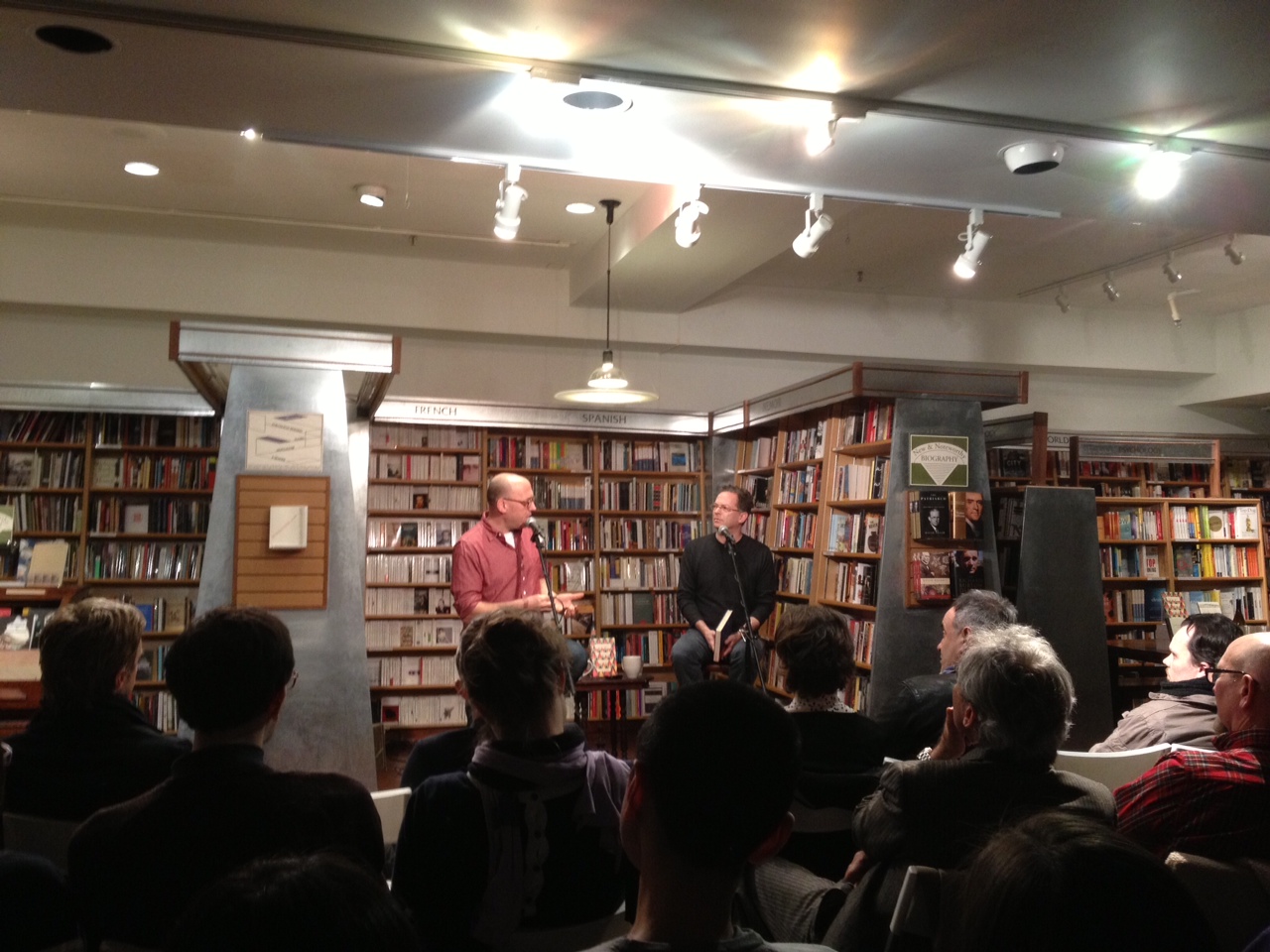Ben Marcus (L) and Glenn Kurtz at McNally Jackson
Moderator Glenn Kurtz, author of Practicing: A Musician's Return to Music was joined by The Flame Alphabet
author Ben Marcus on April 4th for McNally Jackson’s series “Conversation on
Practice.” They spoke about Marcus’ literary-legendary Harper’s article on the
future of fiction, his role as a teacher, and, naturally, thoughts on
Marcus’ own writing practice. Upon being asked if he draws inspiration or energy from visual art, Marcus had this to say about the difference between modern art and modern literary fiction:
I tend to just be envious of painters and visual artists. I probably have the erroneous idea that what we call “innovation,”—recognizing that it’s kind of a weird word and not that accurate—is expected in some art forms, and it’s almost embarrassing if it’s not [innovative]. And in the world of literary fiction it’s so not desired. And it may really be that writing is not meant to advance. That Jane Austen just cracked that code. It was just great what she did- I think it was great- and that narrative art should just refine that.
I sometimes think that the way that visual art is looked at and talked about, and the kind of expectations we have of it I think in in some sense it’s easier to walk into a room and see something strange, and walk out and say “that was so fucked up and strange”-- It’s harder to do that in writing, or as a writer to make something conceptually really messed up, [where] it looks like a certain unreadable ghetto that you’re playing around in. So the envy is a little bit about that, and I know it’s really more complicated and they all tell me I’m totally wrong and they all tell me that the visual art world is the most corrupt, conservative place ever invented ever. But I don’t think so.





 A Black Balloon Publication ©
A Black Balloon Publication ©